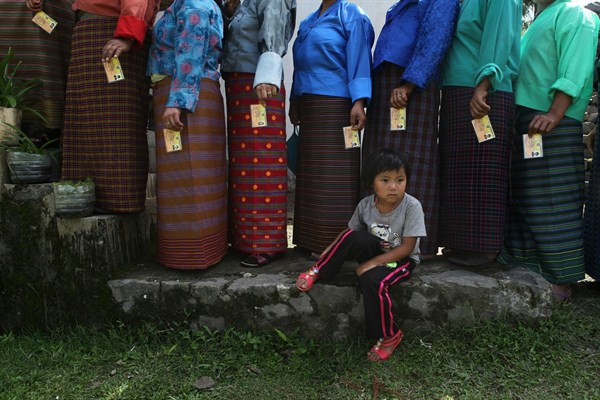The small Himalayan nation of Bhutan held national elections this fall for the third time since implementing multiparty democracy in 2008. As in the previous vote, in 2013, the incumbent party was ousted. Lotay Tshering, leader of the victorious Druk Nyamrup Tshogpa party, was sworn in as prime minister on Wednesday. He will now seek to follow through on campaign promises to improve social services and tackle Bhutan’s growing income gap. On the foreign policy front, the new government is expected to try to reduce its reliance on neighboring India, even as China is looking to expand its influence in Bhutan. In an interview with WPR, Manoj Joshi, a distinguished fellow at the Observer Research Foundation in New Delhi, discusses some of the key takeaways from the elections.
World Politics Review: What accounts for the ruling party’s surprising defeat in September’s parliamentary elections?
Manoj Joshi: Bhutan’s ruling People’s Democratic Party lost in the first round on Sept. 15, placing third with 27 percent of the vote. Only the top two parties—the Druk Nyamrup Tshogpa party, or DNT, which received 31.5 percent of the vote, and the Druk Phensum Tshogpa party, or DPT, which received 30.6 percent—advanced to the final round. The DNT swept to victory in the second round with 55 percent of the vote, winning 30 out of 47 seats in the National Assembly.

